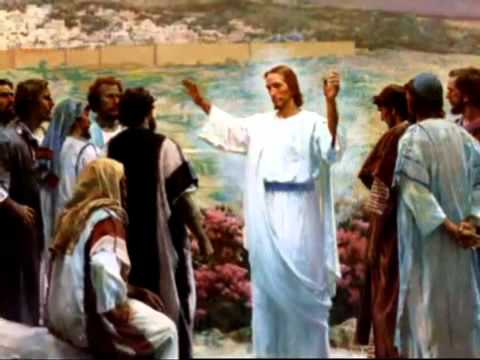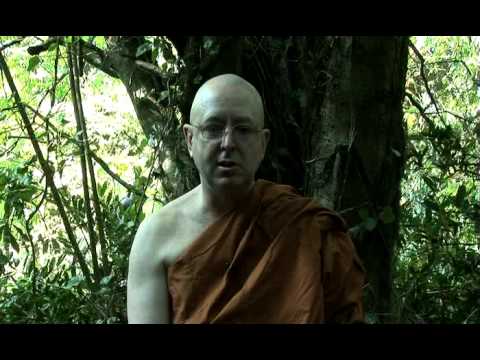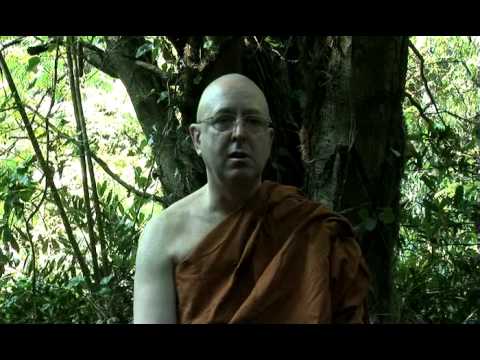![]()
In news that should probably be communicated entirely through emojis, Jesus never lived in India. He didn’t go there in the so-called “missing years”, nor did he go there after the crucifixion to die. Nor was he a Buddhist monk, nor was he schooled by Buddhist monks, nor was he familiar with or interested in any of the major themes of Buddhism. He was a Jewish prophet and teacher, who was born, lived, and died in Israel, teaching exclusively in the Jewish tradition.
The idea that he did live in India is a bit of pseudo-history that is propagated around the bullshit-o-sphere from time to time. It is based on:
- Vague similarities between certain themes in the Buddha’s and Jesus’ teachings.
- Certain local legends dating from much later.
The first of these is meaningless, as religions and philosophies were always sharing ideas, stories, and so on. We know that there was close contact between India and the west dating from a century or so after the Buddha’s death, so there is nothing surprising about some exchange of ideas. As I have mentioned previously, I think there are three parables in the Gospels that are derived from Buddhist sources. But this is just the normal give and take of ideas, and whether or not it is true is not very significant.
What we can say with certainty is that there is nothing in the Gospels, the letters of Paul, or any other early Christian documents that show any knowledge of any of the teachings that Buddha repeated again and again and again: the four noble truths, the eightfold noble path, the five aggregates, dependent origination, not-self, the six senses, the seven awakening factors, and on and on it goes. The entire content of early Buddhist teaching is absent from Christian texts. It is plainly impossible that any serious student of Buddhism should show no familiarity with any of the central teachings of the Dhamma.
The only reason this idea has been spread is because the ones doing the spreading have no understanding of Buddhism. They think that hearing a couple of ideas in the Gospels that echo some Dhammapada verses constitutes evidence of a serious Buddhist education. But the simple and general ethical ideas that are echoed like this are shared between Buddhism and most other Dhammic religions, and are never regarded by Buddhists as central to their religion. You can easily find just as many, or more, similarities with Socrates or Chuang Tzu—did they go to India, too?
The really significant thing here is that some central religious and ethical values, like the Golden Rule, and the importance of love and forgiveness, are widely shared across different regions, and are espoused by spiritual teachers with no connection. That is something truly momentous, and provides the basis for a shared ethic of love and compassion among all the world’s peoples. This should be emphasized as a spiritual and ethical truth, not drowned in a vat of bullshit.
The second “evidence”, the existence of various local legends, is equally meaningless. There are legends saying that the Buddha went to Sri Lanka, to Burma, to Thailand, to China, to Laos, and I assume, to every other Buddhist country. They’re all wrong: the Buddha never left the Ganges valley. The spread of legends of Jesus needs no further explanation.
The document supposedly found in a Tibetan monastery documenting the stay of a certain “Issa” has never, so far as I know, been subject to proper academic scrutiny. It is quite possible that Issa does refer to Jesus, or maybe it has nothing to do with him. But whatever it is, it not a historic document. Old manuscripts are full of fables and legends. Just because something is found in an old manuscript does not make it true.
Much of the persuasiveness of the idea stems from the apparently profound wisdom and equally profound devotion of the senior lamas who have always believed that Jesus lived in Kashmir—or so it would appear as it was filtered through a 19th century orientalist lens. Sorry to break the sad news to you, but Tibetan Buddhism is full of anti-historical nonsense and fantasy masquerading as fact. No doubt there were some excellent critical scholars and historians among Tibetan Buddhists. But they are not the ones telling these stories.
Accounts of this in the bullshit-o-sphere are in the typically breathless clickbait style, designed to fool people with no knowledge of facts. I won’t link to any, because I don’t want to increase their search rankings.
But they say things like:
When a great Buddhist, or Holy Man (i.e. Lama), dies, wise men consult the stars and other omens and set off — often on extraordinarily long journeys — to find the infant who is the reincarnation of the Lama.
This is supposed to be the origin of the story of the wise men. But it is a purely Tibetan custom that arose over a thousand years after the story of the three wise men. To see this as the origin for a story of a thousand years earlier is a wonderful encapsulation of the fact-free zone of this nonsense.
Articles are full of words like “confirms” or “discovery”, and confident assertions about specifics: Jesus “was loved by everyone”, he had “the intention of perfecting himself”, he was “forced to flee”—and on and on the river of bullshit flows. None of this has any foundation in reality.
Much of what they say is self-evident nonsense, like:
the document which tells the true story of a child named Jesus (i.e. Issa = “son of God”) born in the first century to a poor family in Israel. Jesus was referred to as “the son of God” by the Vedic scholars who tutored him in the sacred Buddhist texts
No, issa doesn’t mean “son of god”. And the Vedic scholars taught him the Buddhist texts! ![]()
The extravagance of this level of bullshit is very telling. It is a stupid filter. The idea is that anyone with a measure of common sense will roll their eyes and click away, and only the very dumbest will stay, and even share it with all their friends. Why? Because stupid people are more likely to click on stupid ads and buy stupid stuff. Welcome to the wonderful world of online marketing!
Many of these articles try to claim a degree of respectability by citing a BBC documentary by “experts”. (Hint: there are no experts, because no professional historian is wasting their time on this rubbish.) But what exactly does the BBC say about it? I’m not going to waste my time watching a “documentary”, and neither should you, but this article on BBC News about the so-called Jesus tomb in Kashmir is cited in support of the theory. What the article actually says is:
according to an eclectic combination of New Age Christians, unorthodox Muslims and fans of the Da Vinci Code, the grave contains the mortal remains of a candidate for the most important visitor of all time to India.
Officially, the tomb is the burial site of Youza Asaph, a medieval Muslim preacher
[Riaz, who lives above the shrine] is witheringly dismissive of the notion that Jesus was buried there.
“It’s a story spread by local shopkeepers, just because some crazy professor said it was Jesus’s tomb. They thought it would be good for business. Tourists would come, after all these years of violence.”
Professional historians tend to laugh out loud when you mention the notion that Jesus might have lived in Kashmir
And for those who scoff, remember that others have argued, just as implausibly, that Jesus came to Britain.
So this is one of the most respectable sources they can cite in their support. Just how stupid do they think you are?
Very. That is the answer. They think you are very stupid. Are you going to prove them right?




